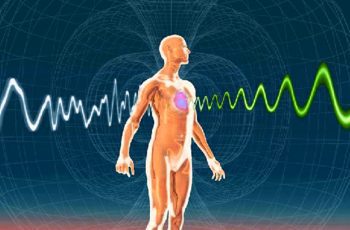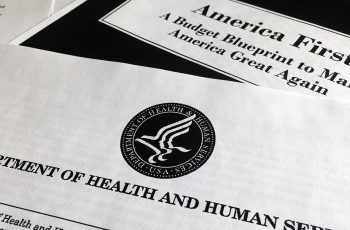A single one-hour meditation session is enough to reduce anxiety and stress on the heart, a new study has found.
Mindfulness programs have become hugely popular amid soaring rates of depression and round-the-clock demands for all workers.
A new study presented today by the American Physiological Society shows that the practice does indeed make an impact – and just one hour will start the process.
The findings suggest meditation could be reasonably prescribed as a first-line treatment for patients with anxiety to protect them from physical health issues.

A new study presented today by the American Physiological Society shows that the practice does indeed make an impact on anxiety-related health woes, and just one hour will do a lot
‘Our results show a clear reduction in anxiety in the first hour after the meditation session, and our preliminary results suggest that anxiety was significantly lower one week after the meditation session,’ said lead study author John J. Durocher, PhD, an assistant professor of physiology in the department of biological sciences at Michigan Technological University.
‘Participants also had reduced mechanical stress on their arteries an hour after the session.
‘This could help to reduce stress on organs like the brain and kidneys and help prevent conditions such as high blood pressure.’
It is widely accepted that stress and anxiety aggravate physical health, increasing levels of inflammation that can cause heart issues and problems with all bodily functions.
Patients can take a myriad of drugs for each condition – such as antidepressants for anxiety, aspirin for heart health.
However, the research team in Michigan sought to quantify how much impact the insurmountably popular mindfulness trend can actually have on the body and whether it could be seen as a viable first-line treatment.
They concluded it could.
To reach that point, they recruited 14 people who had normal blood pressure but high levels of anxiety.
They measured factors related to cardiovascular functioning – including heart rate, blood pressure, aortic blood pressure (blood pressure in the aorta, specifically) and arterial stiffness – before and after a 60-minute guided introductory session of mindfulness meditation.
This type of meditation emphasizes focusing on breathing and awareness of one’s thoughts.
The results demonstrate that even a single, brief intervention can yield measurable improvements in people with anxiety.
Researchers said most participants reported continuing to use mindfulness after the initial session and anxiety scores were reduced even further one week later.
‘This study is different because we examined the effect of a single mindfulness meditation session on anxiety and cardiovascular outcomes, while other studies have examined the effect of several days or weeks of mindfulness meditation,’ Durocher said.
‘The results suggest that a single mindfulness meditation session may help to reduce cardiovascular risk in those with moderate anxiety.’
If you know someone who might like this, please click “Share!”




